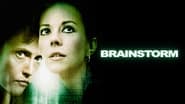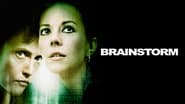PodBill
Just what I expected
FeistyUpper
If you don't like this, we can't be friends.
Pacionsbo
Absolutely Fantastic
mike48128
Natale Wood's last film and released 2 years after her untimely death with a few scenes shot (perhaps) using a stand-in (no film credit). Also staring Christopher Walken and Cliff Robertson. They are part of a team of research scientists that create a remarkable tool that records virtually all of a real-life experience through brainwaves. That includes every nuance of vision, touch, smell, emotion, and (as we learn later) pain and suffering. It's remarkable that it was even finished, and producer-directer Douglas Trumble spent almost 5 million dollars to finish the film after a production "grant" from Lloyd's of London, who insured it's completion. Almost not released by MGM at all. It's unsettling and the "recorded" brainwaves are quite intense and may be disturbing to some. Minor nudity, sexual content, torture, and a vivid "Heart Attack" death experience are all part of the brainstorms! The equipment looks quite real with the record and playback mechanisms using golden "foil" tape. The government intends to produce it on a mass-production scale. The ending is an amazing testament to the genius and artistry of Douglas Trumbull. Both Hell and Heaven are "realistically" portrayed. The devise is corrupted into a diabolical mind control, torture-brainwashing tool, the research scientists attempt to sabotage and destroy it. A 2001 "psychedelic" ending with visions of the afterlife? This haunting film was not a moneymaker for MGM and "feels" unfinished. The music starts and stops in fits although the storyline remains remarkably understandable, with a few minor exceptions. A bit slow at the beginning.The idea of "mind control thru a headset devise" is not original and was used in the original "Star Trek" series, at least twice in the 1960's. I saw this on a big screen and it was a far superior experience, with all the format-size changes on the screen. Viewing it once every few years is enough for me. Both exhilarating and incredibly disturbing at the same time, even on a small(er) home screen.
randolphpat
On September 5, 1921, Roscoe "Fatty" Arbuckle; a well liked comedic actor attended a San Francisco party at which a starlet who crashed the affair died five days later of a ruptured bladder. This served as ample time, however, to allow her to accuse Mr. Arbuckle of rape. She had done this before, but William Randolph Hearts' publishing empire, looking for a scandal picked up the story, resulting in three murder trials and the ultimate acquittal of Mr. Arbuckle. He never appeared on film again. So too is the backstory of the film "Brainstorm", Douglas Trumbull's accidental magnum opus. It is impossible to tell the story of, or review this film without mentioning the drowning death of it's star vehicle Natalie Wood, near the end of its filming. I will leave you to your own research if you wish to learn more about those tragic events. At the beginning of an albeit shortened career, Christopher Walken heavily uses cues from Ms. Wood, and the fantastic character actor Louise Fletcher, who turns in her best performance in this film. And while the creepy editing which allowed for the completion of a film whose star died part way through filming, the scandal made it hard to watch in theaters, especially as much of the audience suspected Mr. Walken of knowing more than he was saying publicly regarding the death of his co-star. One wonders, as great as this film is, how great it might have been without the scandal. One also wonders if the audience knew how remarkably accurate Trumbull predicts future technology, if that would have made a difference. But now, 32 years later, with Christopher Walken again on everybody's top actor list thanks to his Quentin Tarantino sponsored revival, and the scandal just a spec in history's rearview mirror, this film stands on it's own, and it is remarkable. The story is about the development and use of a technology that allows people to record their thoughts an feelings on a device using a 300 baud modem and optical tape library. So we suspend disbelief a little for that. Walken is the junior partner to Fletcher who leads the project, Cliff Robertson directs the project from a corporate and funding level. Robertson is so good at this role, that having worked in a similar environment makes my skin crawl. The two scientists live in the newly developed Research Triangle Park, which serves as the perfect setting for this strange and wonderful research. Natalie Wood also works for the same company, and at the beginning of the film is in the process of divorcing Walken whose creationis obsession with the project has resulted in their separation. While planning their divorce, they also work together in the development of the device that will bring it out of the lab to the consumer. Wood, in an empowering role for a woman at the time, plays a major role in breathing life into this product. As the film continues to focus on how the characters react to the existence of the new technology, Robert Trumbull puts his unique stamp on the evolution of the product, taking us through the production, data storage and even cyber security issues surrounding the technology. With the photography, lighting, and soundtrack all spot on, we are whisked away into this world of technology that in 1983 was just a fantasy, but seems very real today, almost as though we are actually viewing a true account. Sadly it is hard say what Robert Trumbull may have gone on to do had this film been met more favorably. But just as Altman had his "Shortcuts", Paul Thomas Anderson has his "Magnolia", Robert Trumbull has "Brainstorm", clearly a very personal and special film.
Mike Roman
This is not so much a review as it is an observation of some co-incidences relating to this film and Bertrand Tavernier's 'La Mort en Direct' (1980). I would be surprised if Trumbull had not seen Tavernier's effort as both films do seem to share a common fixation on death and the brain. Anyway, to get to the point, both lead actresses, Wood in Brainstorm and Romy Schneider in La Mort en Direct died in the year they made their last films, at the same age of 43, rather unexpectedly it has to be said. I find all this goes quite beyond 'coincidence' and delves into the realm of what Freud called the 'uncanny'. The fact that both films are about the nature of consciousness (in some small way) and death further provokes the mystery. It could be said that there was something of a self-fulfilling prophesy going on.... maybe. At any rate, the mere thought is capable perhaps of shiver-deliverance.....
calego
Personally, I think what makes a good sci-fi movie is when it introduces a concept I haven't seen before. The technology to record and play back experiences was truly original for me. I'm not sure if any other film had explored this idea before, but this was the first one I've seen that did. Another thing about this film is that, for me at least, it is a great landmark in time movie. By that I mean that it was made right at the time that VCRs were just beginning to become available to the average consumer. They were still a bit bulky and expensive in 1983 but it was the very first time people could record shows and play them back whenever they wanted. Tape was the main media for recording sound and video, so naturally the recording media in the movie is also tape. I think it's possible the ushering in of the VCR on the market may have had some kind of influence on the success of this movie at the time it was released. For me, it marks that quantum jump in technology in a really cool way. It's also a great concept movie that has a similarity with the Matrix in the way it explores the concept of virtual reality.




